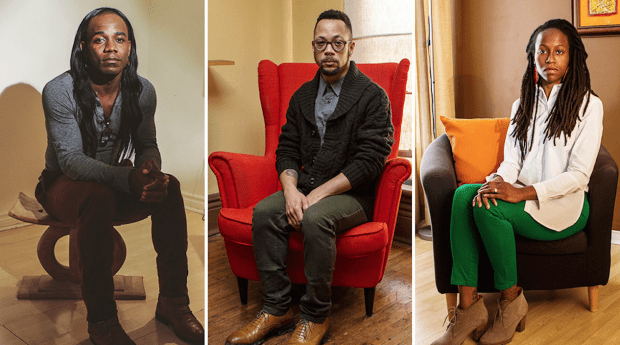A work of art often starts with a singular spark of inspiration; a kind of aha moment propelling the creator to develop a specific project. But in the case of Michèle Pearson Clarke’s Parade of Champions, the piece unfolded as a number of tiny explorations over a period of three years.
Developed in the wake of her mother’s death in August 2011, the series of short films Clarke made formed part of her grieving process, each touching on the subject in different ways, but none acting as a definitive statement.
Ultimately, she decided she needed a framework for exploration and enrolled in Ryerson’s MFA program.
“There was an instinctual feeling that it might be a path out of my overwhelming grief,” Clarke says. “I was confounded and surprised by what grieving her felt like, so I started the programme thinking my thesis would somehow explore that. I realized it was something people had great difficulty talking about it. It felt like a taboo subject and I wanted to make something that would bring grief from the private to the public.”
The three-channel video installation looks at the lives of three black queers who’ve recently lost their mothers. After connecting with her subjects (performer Chy Ryan Spain, dancer Jelani Ade-Lam, and writer Simone Dalton), Clarke met with them individually in their homes. She created a static video portrait of each person and conducted an interview, which are presented together in the installation.
“I let the conversations roam wherever they needed to go and tried to hold the space for the tears but also for the laughter,” Clarke says. “We talked about our moms and the love these beautiful black women had for us. Part of the motivation for making this work was also to challenge the dominant narrative that black people are more homophobic than everyone else. Like every other type of queer many of us get rejected by our families. But many of us also experience deep familial love and acceptance.”
So after nearly four years, multiple short films, and an MFA thesis, has Clarke’s relationship with grief changed?
“My mother is the only person who made me feel fully seen and her unconditional love was a buffer against my experiences of racism, sexism and homophobia,” she says. “I didn’t really understand that until she was gone, and I started to feel more vulnerable on a daily basis. During the process I came to understand the pressure put on black people to be strong and the emphasis throughout our history on survival first. Ultimately, I came to see how to just being able to sit and be sad is an act of revolution.”
Parade of Champions
runs until Sunday, June 28, 2015
Ryerson Image Centre, 33 Gould St, Toronto
http://www.ryerson.ca/ric/exhibitions/Clarke.html


 Why you can trust Xtra
Why you can trust Xtra


